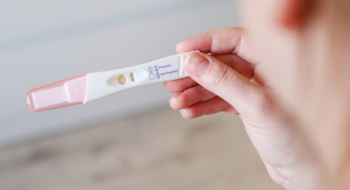The heart is the center of the circulatory system, delivering life-sustaining blood to every part of the human body. It is, despite the brain’s obvious importance, most cited by poets and philosophers as the seat of the soul and the most important organ in the human body.
So it might not be altogether surprising that one in every three cardiac patients experiences depression, and even those with no history of a depressive disorder can confront complicated emotions brought on by the reminder of mortality, says Michele Parr, director of cardiopulmonary rehabilitation at Tidelands Health.
“There’s some emotional toll to it for anybody who goes through a heart attack, stent, bypass or any cardiovascular event,” she says.
Here are some of the most common emotions people encounter after a cardiac event, along with some of Parr’s suggestions for overcoming them:
Anxiety
Part of the depression that can face individuals who have suffered heart-related incidents can be the inability to return to activities they enjoy, and anxiety is often one of the biggest obstacles, says Parr, who has been involved in cardiac rehabilitation for more than 20 years.
“Often, people are afraid they might have a heart attack, so they’re apprehensive to get back and participate in their normal activities,” Parr says. “There’s a fear of pushing themselves too hard.”
Some people become sensitive to everything that’s happening in their bodies. It’s not uncommon for people to experience anxiety because they are focused on their heartbeat all the time.
“The heart races the more anxious you are, and stress hormones are released and it can become a repetitive cycle,” Parr says.
Anger and disbelief
Some people have lived a healthy lifestyle, only to experience a heart problem caused by genetic factors or some type of anatomic issue, Parr says.
“Some people are understandably angry and frustrated that, despite trying to follow all the recommended advice, they still encounter a health challenge,” Parr says.
She speaks from experience.
When Parr was 35, she felt pressure moving into her jaw and went to the doctor. She discovered she needed two stents because of an anatomic anomaly that caused a kink in one of her coronary arteries.
She became paranoid about everything from exercise to sleep; she was afraid to work out and afraid to go to sleep for fear that something could happen to her, she says.
She lost 20 pounds she didn’t need to lose and became hyper-vigilant about eating a plant-based diet.
While she’s moved past the fear, she’s had to come to terms with a permanent change to her body.
“I now have two foreign objects in my coronary arteries,” she says.
It gets better
While the emotions people go through after a heart problem can be problematic, the experience can also serve as motivation that helps people change their lifestyles in a positive way. Often, people will decide to stop smoking or lose weight and eat a healthy diet, Parr says.
Encouragement and support can help patients overcome the initial anxiety about exercise, she says.
For eligible patients, Parr recommends a cardiac rehabilitation program, in which clinicians oversee patients (who are connected to EKGs and other equipment) while they exercise.
“Usually, they get over the anxiety about exercising after they’ve worked out in a supervised environment and realized they were OK while they were hooked up to the equipment,” Parr says. “Then they can feel comfortable when they go out on their own.”
Rehabilitation patients are screened for depression, and some are prescribed antidepressants or antianxiety medications to help overcome their feelings, she says. Over the course of the program, patients’ depression screening scores typically improve.
Cardiac patients who take part in rehabilitation together often bond over the common experience and become sources of support for each other, Parr says.
Support at home is also important, not only to overcoming the depression, but to living a healthy lifestyle and avoiding future cardiovascular issues, she says.
“Patients need a positive, healthy environment at home that encourages them to stay active and eat well,” Parr says. “A healthy lifestyle is central to a long, happy life.”
Enjoy this story? It’s free to republish. Learn more.






